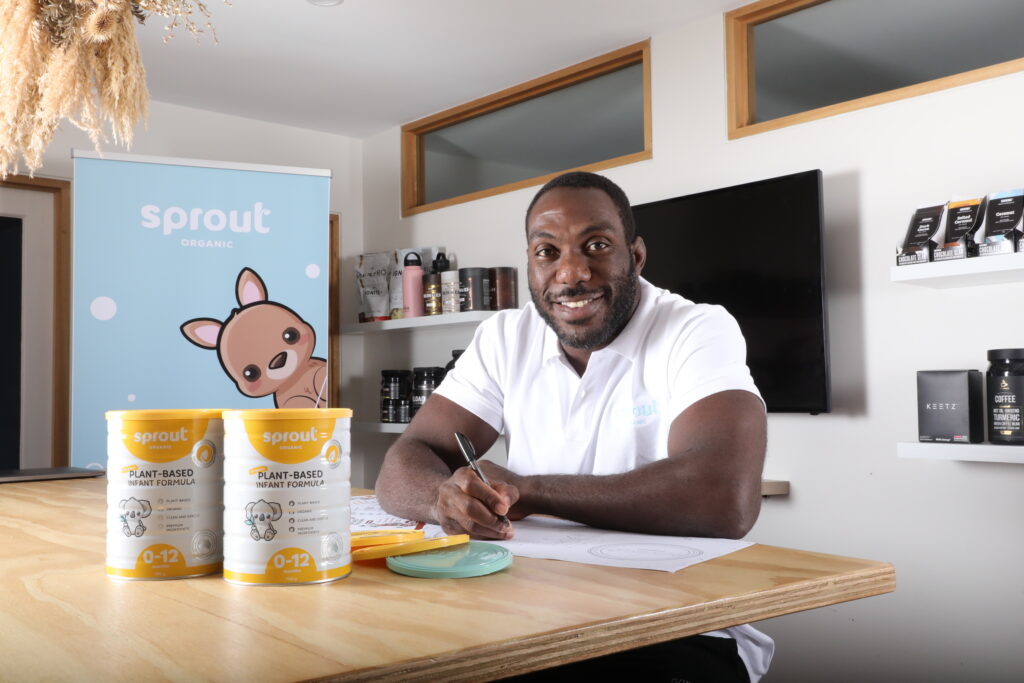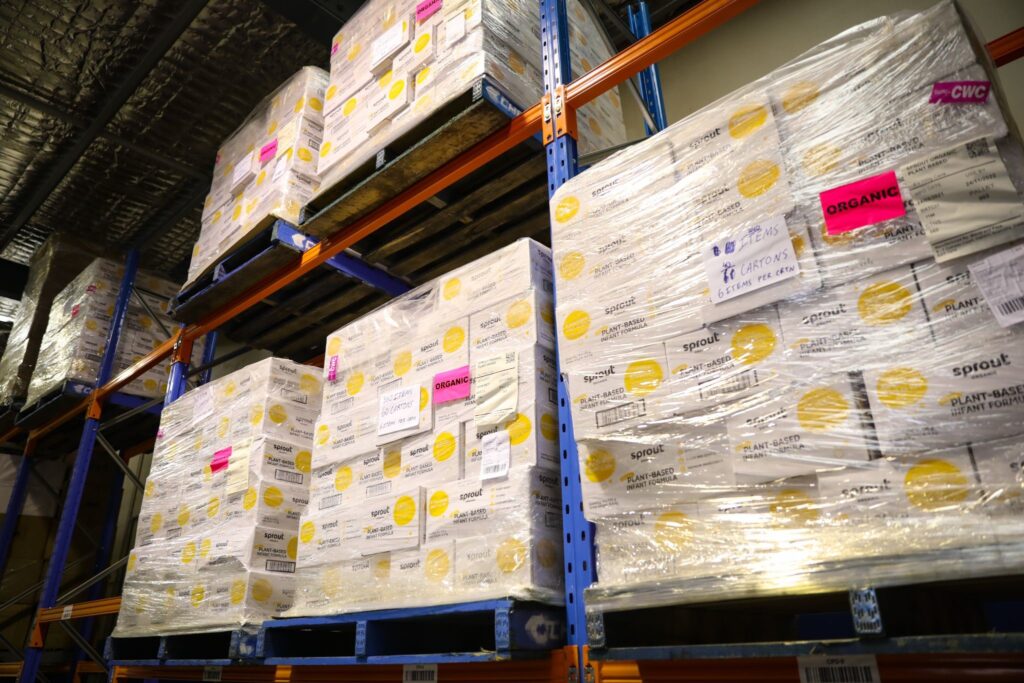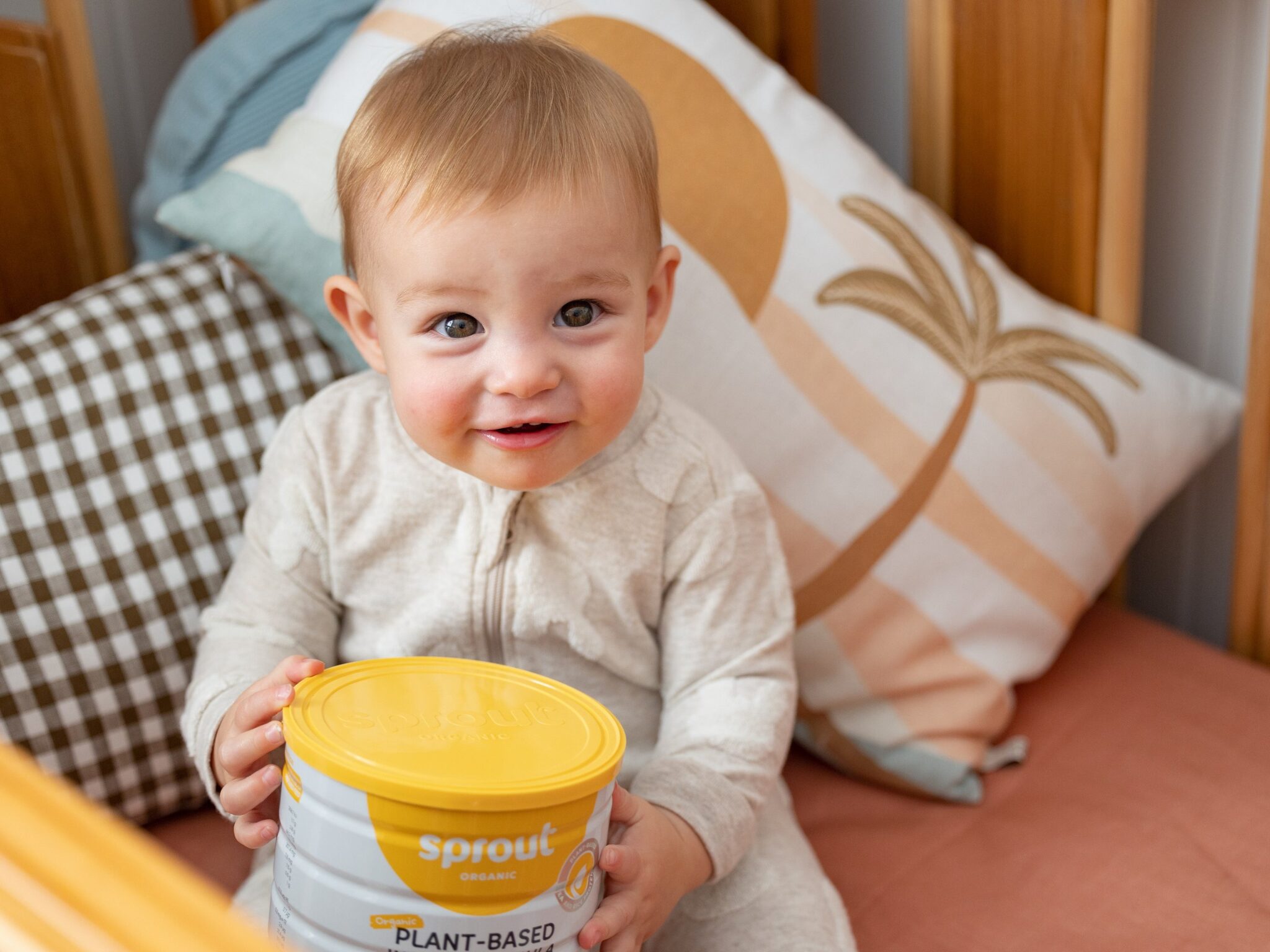Sprout Organic Outlines UK Launch Plans & Why There’s A Lack of Vegan Infant Formula
7 Mins Read
Nadia Schilling, director and chief marketing officer of Australian infant nutrition brand Sprout Organic, talks the lack of vegan formula, seed oils, policy barriers, carbon neutrality, and its UK launch.
As plant-based infant formula goes, the options are few and far between. With 90% of offerings being dairy-based, the category has long been a victim of monopolistic practices by giants like Abbott and Danone, leading to issues like shortages and anti-competitive investigations.
But there are some brands catering to mothers who opt to use formulas, but don’t want to feed their toddlers dairy – which could trigger allergies and intestinal bleeding. One of the pioneers in this space is Australia’s Sprout Organic, which has been selling plant-based formula since 2021.
“The regulatory framework for infant formula is primarily designed for dairy, making it challenging to develop a vegan alternative,” Nadia Schilling, director and chief marketing officer of Sprout Organic, tells Green Queen. “We had to navigate uncharted territory and establish new standards. Many companies are intimidated by this complex process and are led to believe that creating a vegan infant formula is not feasible, as many people tried to tell us along our journey.”
The company stands out from other alternative formula makers in that instead of using soy, its formula is made up of rice and pea protein. “Pea protein has a high Digestible Indispensable Amino Acid Score (DIASS), which measures the quality of protein digestibility. Additionally, the pea protein we use is sprouted and fermented, enhancing its digestibility even further,” explains Schilling.
“When combined with rice protein, it forms a complete amino acid profile, comparable to soy or animal proteins. This makes it an excellent choice for creating a nutritious and easily digestible formula,” she adds.
Contending with seed oils

Speaking of ingredients, Sprout Organic uses a blend of coconut, canola and safflower oil. Seed and vegetable oils have come under a lot of scrutiny across the globe lately, with concerns over oxidisation, fatty acid content, and ultra-processing driving many away from these fats.
A major criticism comes due to the presence of omega-6, which contains linoleic acid. Some say this oxidises 40 times faster than saturated fat, and can become ‘toxic’ and cause a host of diseases, including inflammation.
“A lot of the controversy stems from concerns over chemical solvent extraction methods, but this is largely irrelevant when it comes to organic seed oils, where the use of such chemicals is prohibited,” says Schilling, nodding to the presence of trans fats in some highly processed oils. “Being a certified organic product, our oils are cold-pressed, ensuring they are extracted without the use of any heat or chemicals.
“Some customers ask why we can’t simply use coconut oil alone to avoid seed oils. Legally, all infant formulas sold in Australia must contain all essential fatty acids. When blended with coconut oil, safflower, and canola oil, it completes the required fatty acid profile, which supports brain and retina development and brings many beneficial properties to a healthful formula,” she adds.
“Once we have the opportunity to explain this to our customers, they are very supportive.”
Pricing, regulations and hospitals

As Schilling alludes to, unsupportive regulation is a major reason why we don’t see too many vegan formula makers. “Historically, dairy farmers in Australia relied heavily on government subsidies, with up to 60% of their income coming from these supports,” she says.
But the industry has been deregulated since 2000, and that has helped Sprout Organic reach price parity with organic dairy formulas (A$39.95 or $26.65 per 700g tin). “In fact, we are often more affordable than many other organic infant formula brands, allowing us to offer a high-quality, plant-based alternative that is accessible to more parents,” outlines Schilling.
She explains that formula brands are not permitted to partner with hospitals in Australia, a policy aimed at protecting breastfeeding. “We support this stance as voluntary signatories to the Australian MAIF [Marketing in Australia of Infant Formulas] agreement,” she says.
However, she believes there’s a need for legislative change in Australia to help mothers and caregivers make informed choices: “We strongly oppose the alienation and bullying of mothers who have made the personal or medically required choice to feed their child formula. It is a delicate balance that must be approached with the utmost respect and sensitivity.”
Going carbon-neutral, and dealing with offsets

This week, Sprout Organic announced it was the first Australian kids nutrition company to obtain carbon-neutral certification under the Climate Active standard, a public-private partnership that aims to drive voluntary climate action.
Since most infant formula contains dairy, there is a carbon cost to it. While estimates vary, one study from 2019 suggests that infant formula has twice the carbon footprint of breastfeeding (although contradictory research suggests otherwise). Having the option of using formula is the most crucial element for mothers, but more sustainable versions are only a good thing.
So how has Sprout Organic managed to become carbon-neutral? “Thankfully, the impact of our ingredients at a baseline level was relatively low being 100% plant-based,” says Schilling. “We have diligently measured the impact of each ingredient in our formula, including its packaging.”
“We worked on ways to further reduce our emissions, including sourcing from suppliers closer to our manufacturing site to reduce transportation, in addition to working with our suppliers to improve their environmental practices to ensure alignment,” she explains.

Climate Active advocates for carbon offsets for any emissions that companies can’t eliminate, and Sprout Organic also opts to do so by “investing in Australian projects that actively reduce or remove carbon from the atmosphere”.
However, carbon offsetting can be highly problematic, and often ends up doing more environmental harm than good. Many investigations have shown that some of the world’s most popular carbon credit and offset schemes are ineffective, with one study classifying several as ‘likely junk’. The practice is now more associated with greenwashing than being green, and has prompted legislators to put safeguards against it.
“We’re well aware that there are some shady offsetting schemes out there, which is why we have been very selective about the projects we support. Our offset projects adhere to the strict integrity framework for Australian Carbon Credit Units, as outlined in the Carbon Credits (Carbon Farming Initiative) Act 2011,’ says Schilling. “These principles ensure that each unit used to offset emissions represents a genuine and credible reduction, guaranteeing the integrity of our carbon-neutral claims.”
Climate Active also supports businesses hoping to put carbon-neutral logos on packaging. Will Sprout Organic display its climate footprint on its formula? “Due to incredibly strict regulations for infant formula labelling in Australia, we’ve reached out to the relevant authorities to see if this is permitted. We’re waiting for their response and are hopeful we can make this information available soon,” Schilling says.
International expansion on the cards?

Sprout Organic’s popularity has transcended its home country, with Schilling revealing that the brand has been “overwhelmed” by global demand through e-commerce, which now “dramatically surpasses” demand from domestic customers. “It’s an ongoing challenge, and we’re doing everything we can to scale in line with this demand,” she says.
“We receive e-commerce orders from over 60 countries worldwide,” she adds. Asked about the regulatory barriers, she explains: “Generally, purchasing for personal use is permitted. However, some countries enforce restrictions on quantity, weight, and commercial value per shipment.”
While the company’s products are available in New Zealand and Malaysia, regulatory challenges have impeded retail expansion into other countries. “In the US, the USDA approval process takes a long 24-36 months and is also designed in a way that can be financially prohibitive for foreign competitors, which played a major role in the recent formula shortages seen in 2022,” suggests Schilling.
“With the right investment partner, we are prepared to tackle this challenge and scale our operations to meet the demands of this vast market,” she adds.
However, things are more encouraging if you’re in the UK. “We are actively developing an e-commerce strategy with in-country warehousing to accelerate our market entry,” Schilling says of the company’s British plans. “The rollout will be within the next 12 months.”



